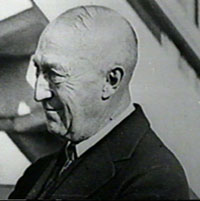Great Stork Derby

Great Stork Derby
The Great Stork Derby was a unique and unusual event in the history of Toronto, Ontario, Canada, that spanned from 1926 to 1936. This event was not a physical race, as its name might suggest, but rather a competition established through the will of a wealthy Toronto lawyer and financier, Charles Vance Millar, who died in 1926. Millar was known for his love of practical jokes and left behind a will filled with bizarre bequests, one of which led to the Great Stork Derby.
Background[edit | edit source]
Charles Vance Millar was a successful lawyer and investor with a penchant for humor and no immediate heirs. His will contained several odd clauses, but the most famous was the one that initiated the Great Stork Derby. This clause stipulated that ten years after his death, the remainder of his estate would be given to the woman in Toronto who had given birth to the most children in that time. This unusual contest captured the public's imagination and received widespread attention in Toronto and beyond.
The Contest[edit | edit source]
The contest officially began upon Millar's death on October 31, 1926, and concluded on October 31, 1936. During this decade, numerous women in Toronto vied for the prize, with the competition becoming a significant part of local folklore. The Great Depression, which began in 1929, added a layer of desperation to the contest, as many families struggled financially and the prize money represented a significant fortune.
Legal Challenges[edit | edit source]
Millar's will, particularly the clause regarding the Great Stork Derby, faced legal challenges. Some family members and other parties contested the will, arguing that it was a joke or that it was against public policy. However, after a series of court battles, the Supreme Court of Canada ultimately upheld the will's validity, allowing the contest to proceed.
Outcome[edit | edit source]
The Great Stork Derby concluded in 1936, with the prize being shared among four women, each of whom had given birth to nine children during the ten-year period. These women received a significant sum, which was a life-changing amount of money during the Great Depression. A few other participants received smaller consolation prizes.
Legacy[edit | edit source]
The Great Stork Derby remains one of the most bizarre episodes in Canadian history. It has been the subject of books, documentaries, and articles, often cited as an example of eccentric wills and the lengths to which people will go to win a contest. The event also highlights the difficult economic conditions of the Great Depression and the impact of financial incentives on human behavior.
Search WikiMD
Ad.Tired of being Overweight? Try W8MD's physician weight loss program.
Semaglutide (Ozempic / Wegovy and Tirzepatide (Mounjaro / Zepbound) available.
Advertise on WikiMD
|
WikiMD's Wellness Encyclopedia |
| Let Food Be Thy Medicine Medicine Thy Food - Hippocrates |
Translate this page: - East Asian
中文,
日本,
한국어,
South Asian
हिन्दी,
தமிழ்,
తెలుగు,
Urdu,
ಕನ್ನಡ,
Southeast Asian
Indonesian,
Vietnamese,
Thai,
မြန်မာဘာသာ,
বাংলা
European
español,
Deutsch,
français,
Greek,
português do Brasil,
polski,
română,
русский,
Nederlands,
norsk,
svenska,
suomi,
Italian
Middle Eastern & African
عربى,
Turkish,
Persian,
Hebrew,
Afrikaans,
isiZulu,
Kiswahili,
Other
Bulgarian,
Hungarian,
Czech,
Swedish,
മലയാളം,
मराठी,
ਪੰਜਾਬੀ,
ગુજરાતી,
Portuguese,
Ukrainian
Medical Disclaimer: WikiMD is not a substitute for professional medical advice. The information on WikiMD is provided as an information resource only, may be incorrect, outdated or misleading, and is not to be used or relied on for any diagnostic or treatment purposes. Please consult your health care provider before making any healthcare decisions or for guidance about a specific medical condition. WikiMD expressly disclaims responsibility, and shall have no liability, for any damages, loss, injury, or liability whatsoever suffered as a result of your reliance on the information contained in this site. By visiting this site you agree to the foregoing terms and conditions, which may from time to time be changed or supplemented by WikiMD. If you do not agree to the foregoing terms and conditions, you should not enter or use this site. See full disclaimer.
Credits:Most images are courtesy of Wikimedia commons, and templates Wikipedia, licensed under CC BY SA or similar.
Contributors: Prab R. Tumpati, MD

